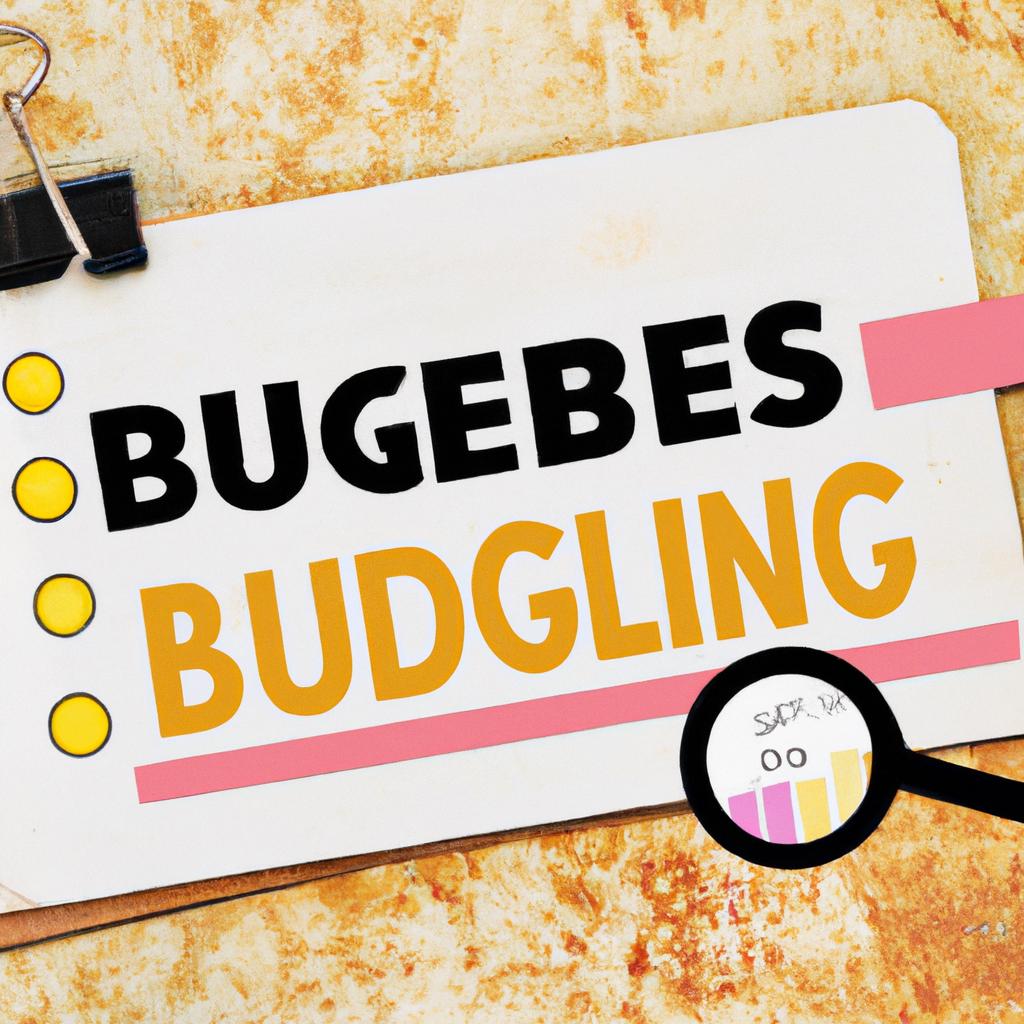In a world where the ebb and flow of financial stability can often feel like a tumultuous tide, mastering your finances remains a cornerstone of personal success. Imagine navigating your life with a crafted roadmap—a budget—designed not just to keep you afloat but to propel you toward your goals. Creating a budget is more than just a numbers game; it’s an empowering act of self-discipline that can unlock doors to new opportunities and reinforce your autonomy. But the real challenge lies not in drafting this financial blueprint, but in adhering to it amid the distractions that life throws our way. In this article, we will explore the essential steps to crafting an effective budget, as well as practical strategies to help you stay on track and turn your financial aspirations into tangible achievements. Join us on this journey to take control of your finances and pave the way for a more secure and fulfilling future.
Strategies for Creating an Effective Budget that Aligns with Your Financial Goals
To create a budget that effectively correlates with your financial aims, consider implementing the following strategies:
- Set Clear Financial Goals: Identify both short-term and long-term objectives, such as saving for a vacation, paying off debt, or building an emergency fund.
- Track Your Income and Expenses: Maintain a detailed record of your income sources and expenditures to gain insights into your spending habits.
- Utilize the 50/30/20 Rule: Allocate 50% of your budget to needs, 30% to wants, and 20% to savings and debt repayment.
- Review and Adjust Regularly: Revisit your budget periodically to make adjustments based on changes in income, expenses, or financial goals.
- Incorporate Savings into Your Budget: Treat savings like a recurring expense to ensure you’re always setting money aside.
| Goal Type | Example | Time Frame |
|---|---|---|
| Short-term | Emergency Fund | 0-1 Year |
| Medium-term | Vacation Savings | 1-5 Years |
| Long-term | Retirement Fund | 5+ Years |

Building Discipline: Tips and Tools for Maintaining Your Budget Long-Term
Maintaining a budget is not merely a one-time task; it’s a lifestyle choice that requires consistent discipline. One effective strategy to fortify your budgeting efforts is to harness technology. Consider using budgeting apps that sync with your bank accounts, enabling you to track spending in real-time. Additionally, incorporating **automatic transfers** can simplify your savings process. Here are some practical tips to help you stay on track:
- Set Clear Financial Goals: Define short-term and long-term aspirations to give your budget a sense of purpose.
- Review Regularly: Schedule monthly check-ins to assess your progress and make necessary adjustments.
- Use Envelopes: Embrace the envelope system for discretionary spending categories to prevent overspending.
- Reward Yourself: Celebrate milestones, no matter how small, to stay motivated.
Moreover, a table illustrating your monthly budget categories can be a useful visual tool:
| Expense Category | Budgeted Amount | Actual Amount | Difference |
|---|---|---|---|
| Housing | $1,200 | $1,150 | $50 |
| Groceries | $300 | $350 | -$50 |
| Transport | $150 | $120 | $30 |
| Entertainment | $100 | $80 | $20 |
By creating a clear framework and implementing these tools, you can cultivate a disciplined approach to your finances, allowing you to enjoy the peace of mind that comes with sticking to your budget over time.
Concluding Remarks
As we conclude our exploration of mastering your finances through effective budgeting, it’s clear that the journey to fiscal responsibility is as much about mindset as it is about numbers. Crafting a budget isn’t merely a task; it’s a strategic plan that empowers you to take control of your financial landscape. Remember, the process is iterative—adaptability is key. You may encounter ups and downs, but each experience is an opportunity to learn and grow stronger in your financial management.
By setting clear goals, tracking your spending, and holding yourself accountable, you pave the way to not only hitting your targets but also unlocking a sense of freedom and security. Embrace the discipline and creativity required to stick to your budget, and you’ll find yourself well-equipped to navigate unexpected challenges with confidence.
So, whether your ambitions lie in saving for a dream vacation, paying off debt, or building a nest egg for the future, remember that success is not defined by perfection, but by progress. Take the first step today, and let the art of budgeting illuminate your path to financial success. Your future self will thank you.










